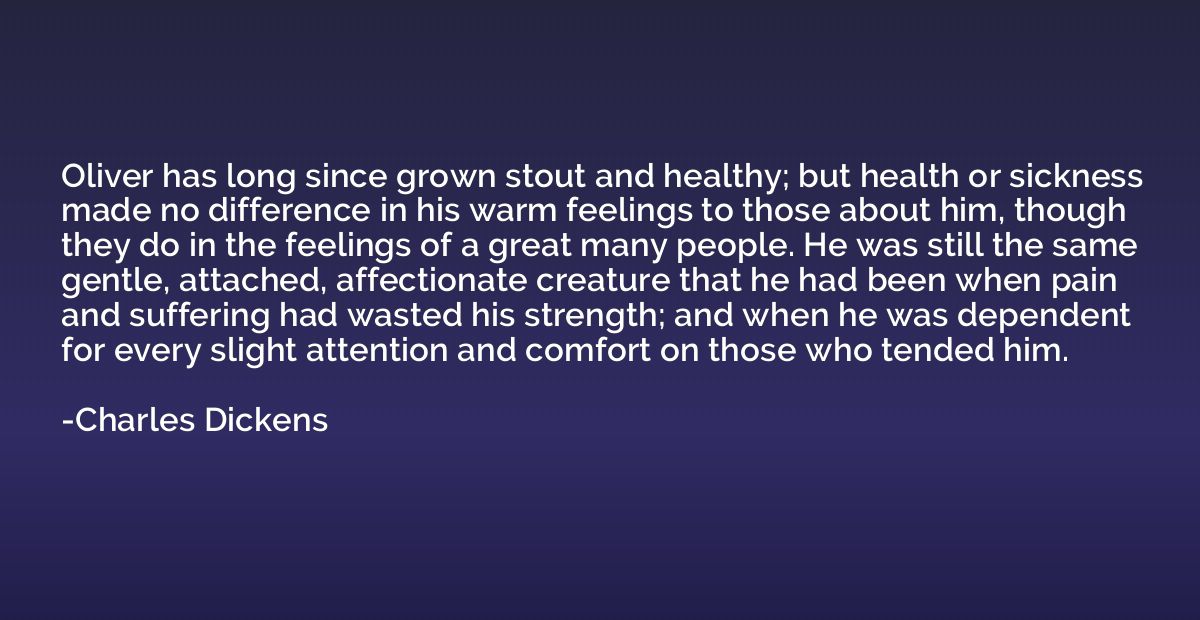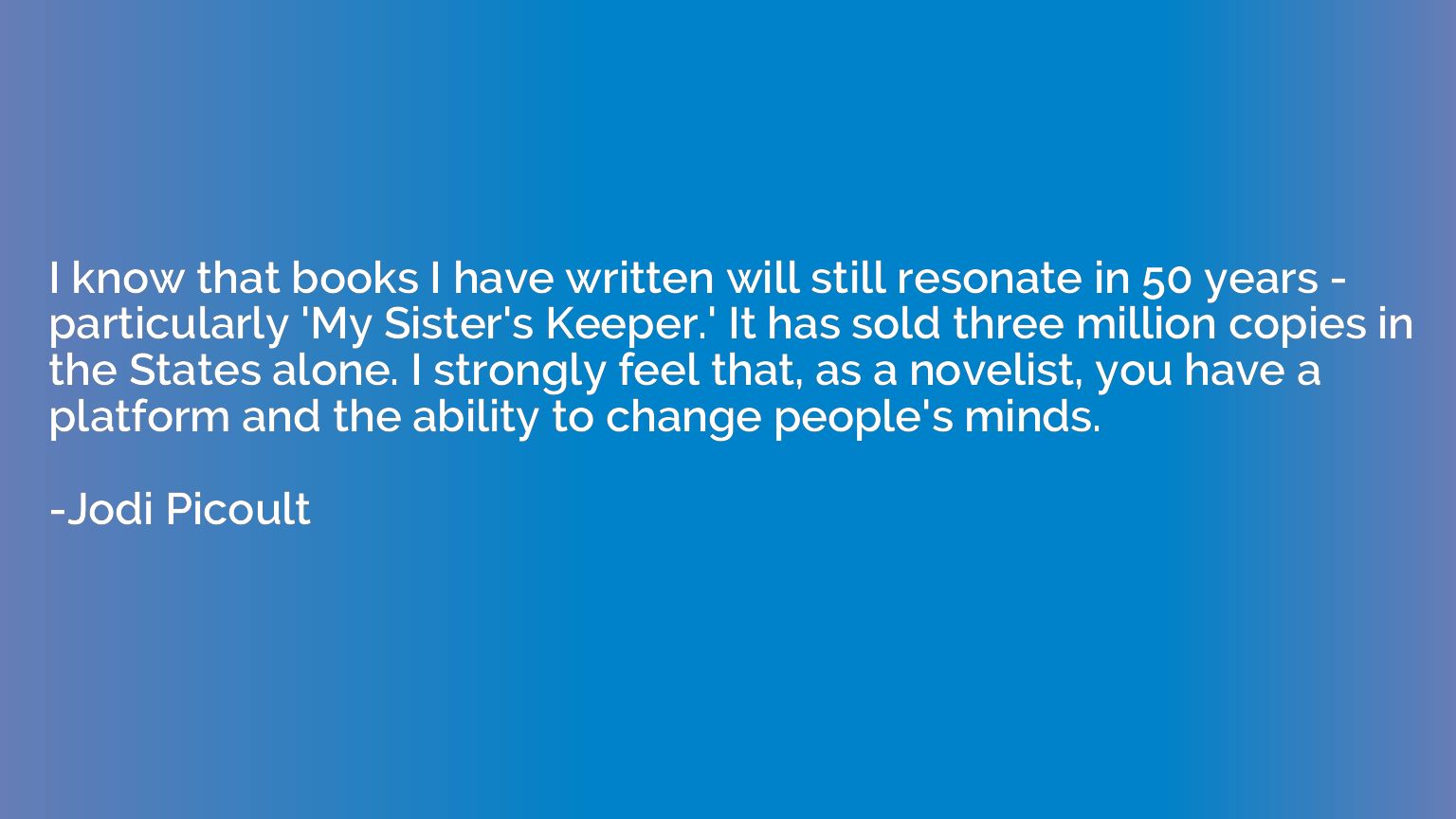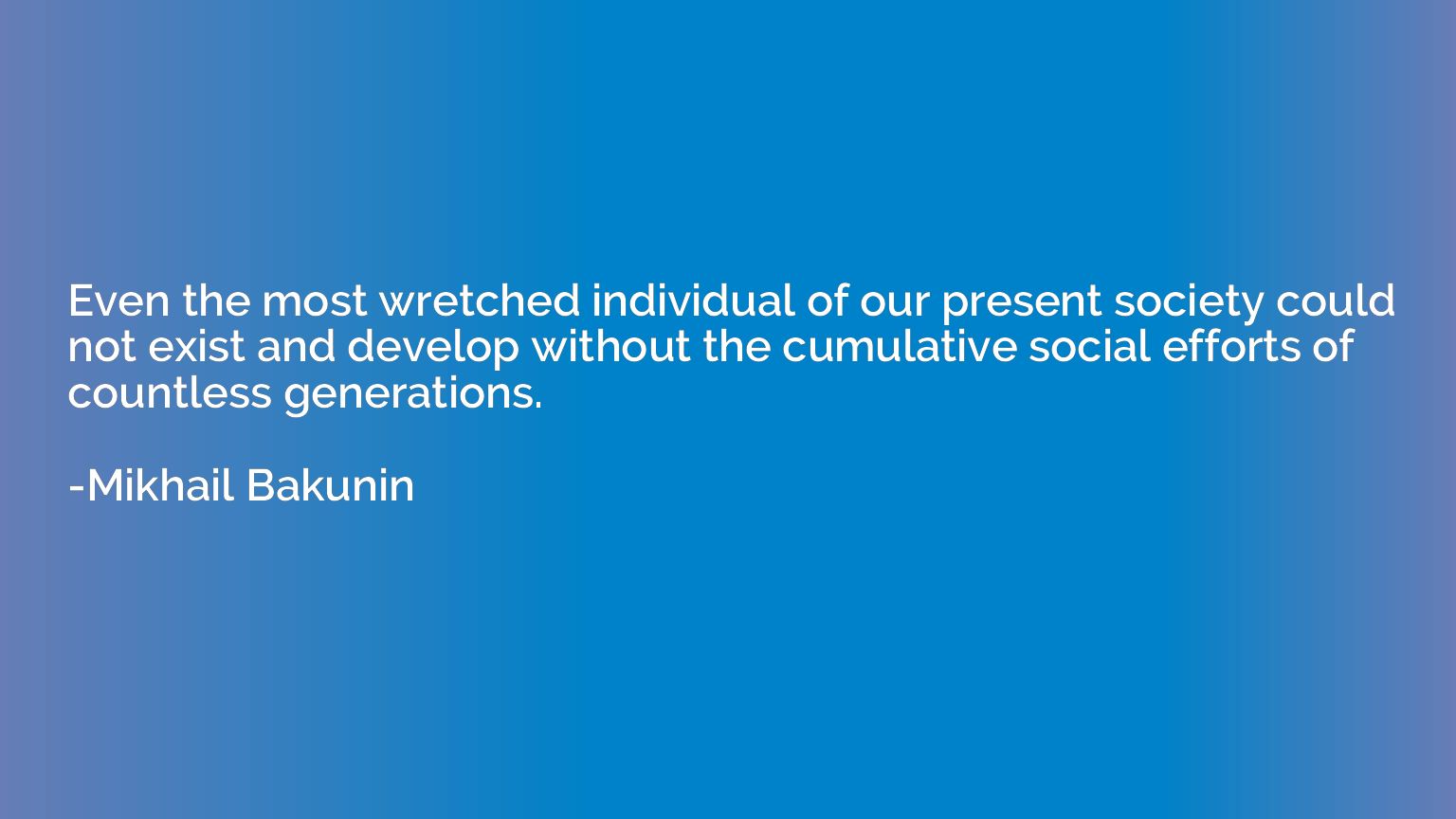Quote by Charles Dickens
Oliver has long since grown stout and healthy; but health or sickness made no difference in his warm feelings to those about him, though they do in the feelings of a great many people. He was still the same gentle, attached, affectionate creature that he had been when pain and suffering had wasted his strength; and when he was dependent for every slight attention and comfort on those who tended him.

Summary
This quote emphasizes Oliver's unwavering kindness and love for others. Regardless of his own health, he continues to treat everyone with warmth and affection. While many people's attitudes may change depending on their well-being, Oliver remains gentle and attached to those around him. Even when he was weak and relied on others for basic care, his gratefulness and affection never wavered. This quote highlights Oliver's timeless and unselfish nature, serving as a testament to his character.














